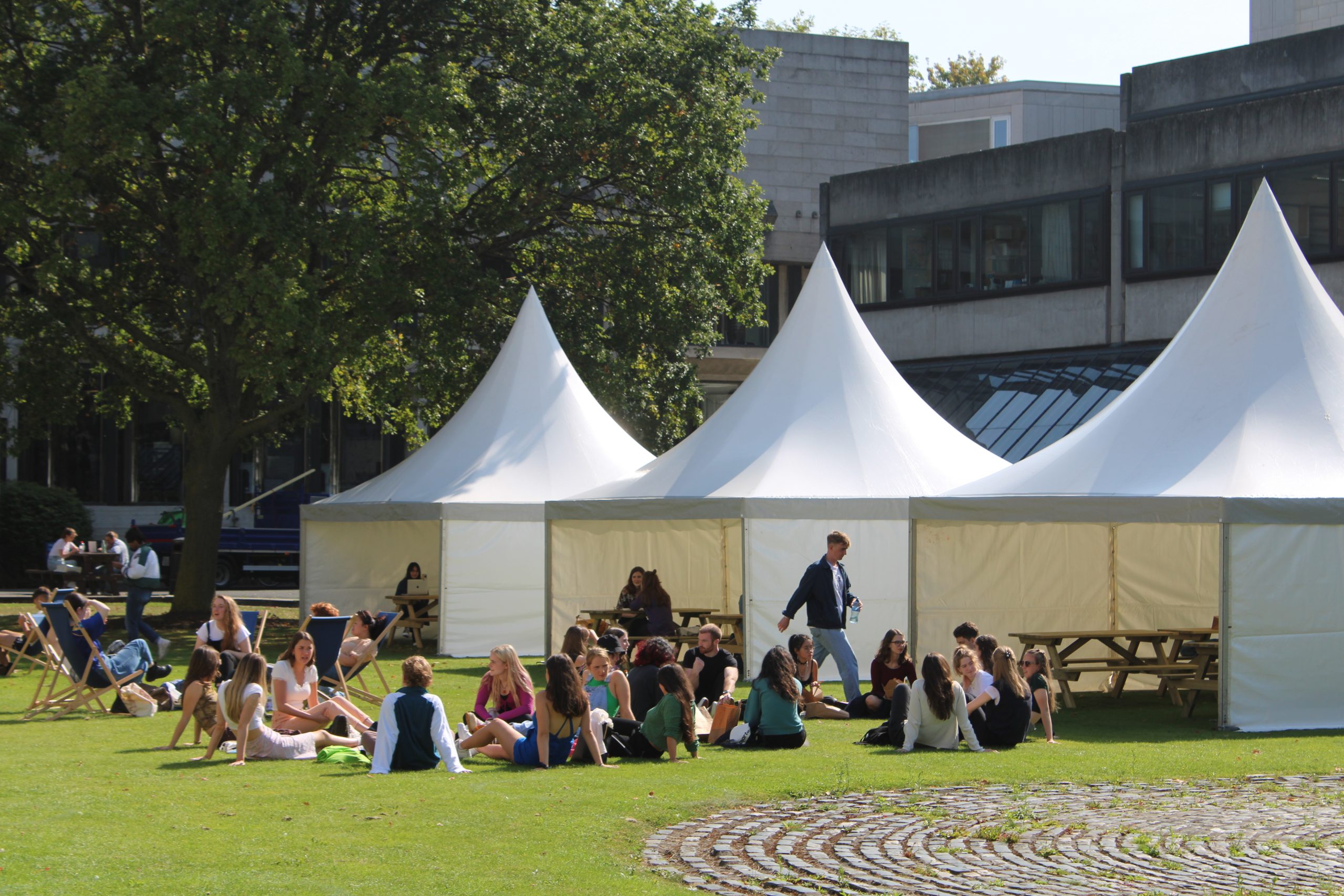This September, thousands of students around the country will be returning to in-person classes, with restrictions in place. In comparison to other colleges in the country, Trinity’s approach to reopening has been relatively conservative.
After more than a year of online classes and awkward social events on Zoom, it is understandable that students, especially second-year students who had spent their first year of college in their rooms, want to finally return to campus and interact with course mates for the first time. With the number of young people aged 18-24 in Ireland who are fully vaccinated standing at 71%, the vast majority of students returning to College will be vaccinated. Announcement of reopening plans for third-level institutions by the government has students hopeful for the upcoming semester. However, it is wise to remember to be vigilant upon returning as the pandemic continues.
“This is not a post-pandemic era we are living in, but an ongoing pandemic.”
With the hospitality sector reopening using vaccine certificates, and a myriad other commercial industries (i.e. cinemas, theatres, live music) also reopening from September 6, life may finally resemble returning to normal. However, with a consistently high number of more than a thousand cases recorded in Ireland on a daily basis and the increased transmissibility of the Delta variant, precautionary measures should still be taken as rigidly as possible. This is not a post-pandemic era we are living in, but an ongoing pandemic. One need not look further than the North to see the risk starkly, with thousands of people aged 5-19 testing positive for the virus. The effects of this on education were massive, as absences from school rose due to students either having COVID-19 or being a close contact. The education department is vastly different from any other sector, due to the nature of in-person classes on a daily basis. If backsliding were to occur, the impacts of this would be colossal. This is even more true of universities, with significantly more students and accompanying socialising. With eyes on the North, it seems only sensible to express some hesitance with reopening.
Trinity College in particular, due to the campus’ central location in the city center, caution should be exercised with a full reopening. College’s two-stage reopening plan, compared to other third-level institutions, has more restrictions and limits to in-person learning, with lectures over 150 people being conducted online. Students, even if disappointed, should be able see the justification in the preventative measure of gradual reopening. From a public health perspective, allowing all 18,000 students back onto campus, with no social distancing in lecture halls, would be a very irresponsible decision.
With the intention of the College to relax restrictions for more in-person experiences from November 1 onwards, the restrictive measures are presumed to be temporary. The slow reopening serves as a major precaution, and to proceed accordingly if no outbreaks occurred. While it is true that universities with a larger number of students (like UCD and NUIG) are resuming most lectures at full capacity, with no social distancing but mandatory masks, Trinity’s location makes it an incomparable case; as an outbreak in Trinity would be dire due to its city center location.
However, the dissatisfaction of students in regards to the reasoning of College’s central location being an indicator to taking a more cautious reopening approach is also valid. Prior to September 6, students were not allowed on campus without an official academic reason (for example, a library booking). For College, the difficulties students faced needing a reason to enter campus when tourists were able to enter the university on guided tours reflect poorly on their dedication to student welfare and reinforced the view students already have in regards to the College prioritising economic interests over student satisfaction.
The discontentment of students lay in College’s inconsistency and delayed communication- College’s heedfulness on opening up would have been better received if College had not accepted tourists into campus in a more organised and systematic manner than students were allowed to enter campus before September 6. For students who have suffered at the hands of the pandemic in social isolation while coping with the stress of managing college work, College must do better at communication, in both conveying their reasoning on policies and listening to feedback from students.
“Although students may be displeased with a slow reopening, the pandemic is still an ongoing issue, with dire consequences to people’s healths.”
It is important to remember, nevertheless, that although students may be displeased with a slow reopening, the pandemic is still an ongoing issue, with dire consequences to people’s healths. While Ireland, due to its success of the national vaccination program, is able to reopen schools and universities and open the country sector by sector, there are many other countries around the world with little access to vaccines where the pandemic is still killing hundreds, even thousands per day. We, as a community, have a responsibility to each other, to protect each other and to put the preservation of the physical and emotional well-being of each other over our frustration at still having an online class on our timetables.






